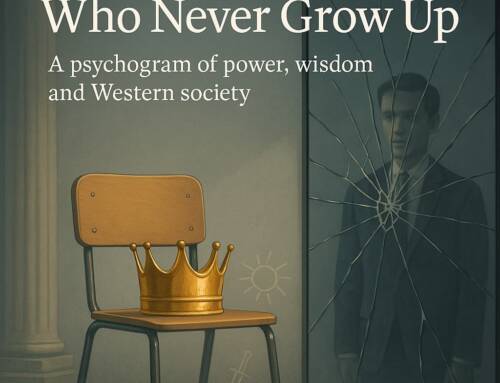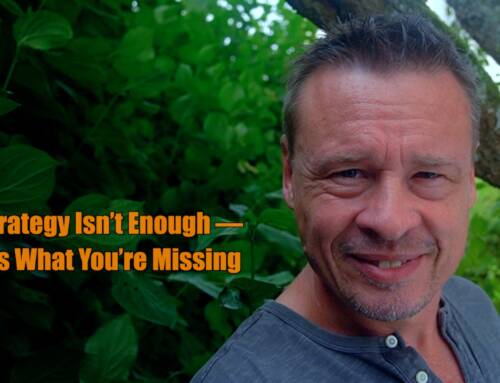Development cooperation faces inherent challenges that extend beyond the limitations of the system itself. By examining the underlying dynamics and drawing parallels with the German auto industry’s resistance to change, we can shed light on the role of certain individuals in impeding progress.
This article explores the need for a paradigm shift and proposes strategic ideas to enhance development cooperation.
I. The Role of Individuals in Systemic Challenges
Understanding Systemic Issues
The term “systemic challenges” in the context of development cooperation often becomes a shield, masking the intricate and deep-rooted problems that hinder progress. It has become an apologetic phrase, offering an excuse for the slow pace of change and the persistence of ineffective practices. It is key to see that specific groups within the system play a “sustainable” role in hindering progress. Their actions or lack thereof contribute to the system’s limitations and call for systemic reform.
The German Auto Industry’s Resistance to Change
To illustrate the influence of a specific group of people on a system, we can analyze the German auto industry’s response to digitalization. Rather than attributing their lack of adaptation to mere negligence, it becomes evident that a group within the industry actively fought against digitalization and the shift toward electric engines. Their political influence, built over time, aimed to maintain the status quo of combustion engines, thwarting innovation and progress.
II. The Engineering Mentality in Development Cooperation
The Prevalence of Technical Expertise
Development cooperation often values subject matter experts who rise through the ranks based on their technical proficiency — usually in classic development cooperation fields. There is a prevailing belief among these experts that their role as subject matter experts supersedes the need for learned management or the recognition of the contribution other new areas like communications bring into the development equation. Consequently, the importance of digital engineering — as in the case of the auto industry — and other critical aspects is overlooked, inhibiting progress within the industry.
Missed Opportunities for Change
The reluctance to enforce necessary changes within the system results in missed opportunities for development cooperation. Power dynamics, resistance to change, and a fixation on the status quo prevent the sector from adapting to evolving needs. This perpetuates the reliance on outdated methods and hinders innovation and progress.
III. Evaluating Development Cooperation and Overcoming Resistance
The Lack of Independent Evaluation
Independent evaluation is vital for the effective assessment of development cooperation projects. However, the current evaluation processes often fail to provide impartial and comprehensive insights due to the influence exerted by internal interests. This lack of objective evaluation inhibits critical reflection, improvement and serious moves outside the box concerning their own ways of operating.
Shifting Communication Strategies
To overcome resistance and foster change, development cooperation must embrace new communication strategies. It is essential to recognize that there are already substantial “evaluations” that are provided by reality when you take a good look or if you ask the perspectives of beneficiaries without being selective about what you hear.
By moving beyond reporting with a scientific-objective appeal, ie. that are loaded with facts and figures, towards appealing to people’s emotions more, practitioners can engage their hearts and minds. Incorporating humor and emotional appeal can bridge the gap and lower resistance to change — at the end of implementation in the partner countries, just as within the implementing agencies’ structures.
Effective Communication Approaches
Finding the right balance between delivering facts and evoking emotions is critical in successful communication. By employing appealing language and persuasive techniques, practitioners can create a connection that transcends technicalities. Highlighting the experiences and stories of project beneficiaries can create empathy and engagement, making communication more impactful.
IV. Redefining Development Cooperation Communication
Emphasizing People and Solutions
Shifting the focus from self-promotion to the people impacted by development initiatives is essential. Acknowledging the strengths and weaknesses of local staff and involving them more in decision-making processes can foster trust and cooperation. By recognizing and flattering people’s achievements, practitioners can create a collaborative environment focused on achieving shared goals.
Symbols and Local Context
To enhance communication effectiveness, it is important to incorporate symbols and cultural references that resonate with local communities. Understanding the beliefs and values of the target audience allows for the creation of a sense of belonging and trust. By utilizing these elements, practitioners can establish connections that transcend language barriers and facilitate better understanding.
The Art of Pace and Rhythm in Communication
Considering the broader context and adopting a long-term communication strategy is key. Adapting communication approaches based on the stage of engagement allows practitioners to maintain authenticity. By carefully balancing the pace and rhythm of communication, practitioners can keep their audience engaged and receptive to the message.
Next?
Let’s go back to the comparison with the German auto industry quickly. It would be inaccurate to say that they simply overlooked digitalization. The truth is that a group within the industry actively fought against embracing digitalization and electric engines. Through their accumulated political influence, they preserved the industry’s current state, even at the expense of progress. This group believes that their expertise as engineers is more valuable than their ability to adapt and manage change. Unfortunately, they fail to recognize the importance of technological advancements and the necessity for evolution.
The parallel to the development cooperation system becomes apparent. A specific group of individuals, recruited based on their subject matter expertise and scientific background, dominates the sector. While their knowledge is valuable, their approach often neglects the reality that development aid has consistently fallen short of its promises. The evaluation process, controlled by those who hold the resources, lacks independence. It is evident that impartial evaluations cannot arise from a system where the evaluators depend on the very entities they are evaluating. Yet, little effort is made to address this fundamental flaw.
So, what can be done differently?
In the realm of communication, recognizing the reality-based evaluation and feedback provided by the beneficiaries is essential. Their negative experiences and limited benefits from the aid should guide us. Incremental steps have proven insufficient, considering the substantial resources poured into development cooperation. We must assess whether the positive effects outweigh the efforts invested. Simply celebrating positivity without critical analysis is misleading.
To evoke change, we need to shift our communication strategies. Relying solely on scientific papers and technical presentations is outdated. Facts alone do not inspire belief or drive action. Instead, we must tap into people’s emotions and connect with their hearts. Communication professionals can play a vital role in this transformation. However, they must challenge the existing norms within the system that undermine the potential for impactful communication.
In this pursuit, it is key to prioritize the people we aim to serve, rather than focusing solely on the problems we intend to solve. By understanding their strengths, weaknesses, and aspirations, we can tailor our communication approaches accordingly. By highlighting their individual progress and contributions, we can engage them on a deeper level and inspire positive change. It is important to strike a balance, avoiding excessive use of technical language that alienates or overwhelms them.
And as an aside, development cooperation seems completely underdeveloped in terms of internal communications.
Furthermore, effective communication requires consistency and repetition. Reiterating key messages and affirmations reinforces understanding and retention. It is essential to break free from the argumentative and self-justifying style that dominates the development cooperation sector. Rather than engaging in debates that create silent enemies, we must employ language that is inviting, persuasive, and even humorous. Such an approach can help lower resistance to change and establish a genuine connection with our audience.
Humor and storytelling can play a crucial role in capturing attention and challenging the status quo. We must move away from self-absorption and focus on understanding the people in the recipient countries. Utilizing local staff and recognizing their strengths and weaknesses can foster collaboration and build trust. Repetition of key messages and emphasizing affirmations can enhance understanding and reinforce ideas. The language used should be enticing, persuasive, and emotionally resonant.
It is essential to strike a balance and avoid excessive use of flowery language or self-praise, as it can come across as insincere or pretentious. Communication should aim to create trust and focus on the problems and solutions at hand. By understanding the psychology of the audience, employing effective storytelling techniques, and utilizing symbols that resonate with the local context, communication efforts can become more persuasive and successful in achieving their intended goals.
In summary, transforming development cooperation requires a multifaceted approach. Recognizing the influence of individuals and their resistance to change is key. We must adopt new communication strategies that appeal to emotions, embrace transparency, leverage local expertise, foster collaboration, and advocate for policy reform. By challenging the status quo and implementing these changes, we can create a more inclusive, impactful, and sustainable development cooperation system.






Leave A Comment